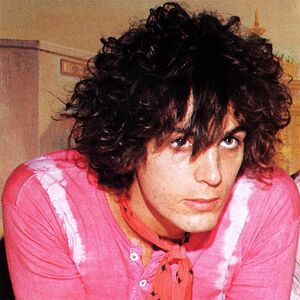Lofi Costinzi: Difference between revisions
mNo edit summary |
mNo edit summary |
||
| Line 4: | Line 4: | ||
{{Infobox person | {{Infobox person | ||
|name = Lofi Costinzi | |name = Lofi Costinzi | ||
|image = | |image = LofiCostinzi_Photo.jpg | ||
|caption = Costinzi, | |caption = Costinzi in 1970, age 24 | ||
|birth_name = Lofi Defacio Costinzi | |birth_name = Lofi Defacio Costinzi | ||
|birth_date = 16 March 1946 | |birth_date = 16 March 1946 | ||
Revision as of 18:58, 8 March 2022
Lofi Costinzi | |
|---|---|
 Costinzi in 1970, age 24 | |
| Born | Lofi Defacio Costinzi 16 March 1946 Vassontum, Abderia, Caphiria |
| Died | 7 July 1975 (aged 29) |
| Cause of death | Suicide |
| Nationality | Caphirian |
| Occupation |
|
| Musical career | |
| Genres |
|
| Instruments |
|
| Years active | 1964-1975 |
| Labels | Intranto |
| Associated acts | Zenza |
Lofi Costinzi (16 March 1946 – 7 July 1975) was a Caphirian singer, songwriter, and musician who co-founded the band Zenza in 1964. Costinzi named the group and was their original lead singer, guitarist and principal songwriter but was ousted by Diusto Iscalda in 1974 amid speculation of mental illness and his excessive use of psychedelic and opioid drugs.
As a musician, Costinzi was incredibly active, having recorded seventeen singles and their first four studio albums. He also had a successful solo career, having released two studio albums, various collaboration projects and concept albums. Zenza is widely considered to be one of the best-selling and most acclaimed acts in music history; by their thirtieth anniversary the band had sold more than 200 million records worldwide, including 75 million units sold in Caphiria. Costinzi's solo career was also highly successful; both of his albums were met with critical acclaim and he was the first person to have been named Artist of the Year and Band of the Year simultaneously by the Capedeva Music Awards.
In November 1971, Costinzi was hospitalized a month before the release of their highly anticipated fifth album Homina Dæmonium. The album coincided with the fifth anniversary of their debut album and was going to kick off their first global tour. The cause of Costinzi's hospitalization was due to excessive use of psychedelic drugs and there was speculation that he suffered from schizophrenia, though this was never confirmed. Unable to postpone the album release and tour, Zenza continued without Costinzi. Diusto Iscalda, who joined the group as guitarist and co-lead vocalist shortly before the departure, took over for Costinzi.
Costinzi rejoined the band in spring 1972 but Iscalda had assumed leadership of Zenza, who was in the process of finishing their sixth album. Costinzi didn't like being second-in-command and the recording process was different under Iscalda. A bitter rivalry was created over who should lead the band, who should write and play which songs, the overall sound and content of the album and more. This lasted close to two years and Costinzi became increasingly erratic and experienced hallucinations, disorganized speech, memory lapses, intense mood swings, and periods of catatonia. This was a consequence of his reported heavy use of psychedelic drugs as well as a growing opioid addiction. Eventually and with the blessing of the rest of the band, Iscalda negotiated a new recording contract with himself as the leader and formally fired Costinzi in late 1974. He left the music industry, retired from public life and strictly guarded his privacy until his suicide in 1975.
Costinzi was known for his innovative guitar work and use of techniques such as dissonance, distortion and feedback influenced many musicians. Although mainly known for his guitar work, Costinzi played bass on some Zenza tracks, and also played keyboards, synthesiser, banjo, lap steel, mandolin, harmonica, drums, and saxophone. Costinzi was inducted into the Caphirian Rock and Roll Hall of Fame as a member of Zenza and as a solo artist and has numerous accolades between them. Costinzi has won Band of the Year five times, Best Artist twice, Album of the Year four times, Record of the Year, Band of the Decade, and Guitarist of the Decade. Both Costinzi and Zenza are among the most commercially successful and influential groups in popular music history.
Life and career
Early years
Zenza
Zenza and signing
Commercial success
1971 hospitalization
Solo career
Success Isn't About Greatness
Collaborations
Later years
Final recordings
Withdrawl to Escal
Death and aftermath
Legacy
Personal life
Health
Relationships
Discography
Main article: Lofi Costinzi discography
See also: Zenza discography
Solo albums
- Iterum (A Second Time) (1969)
- Circa Magnalia Fortunae (Success Isn't About Greatness) (1972)
with Zenza
- Zenza (1964 independently; 1965 re-release)
- Commercii Contrivi (Commercial Brake) (1967)
- Arganti (Focus) (1968)
- Cimiterio Vivos (Cemetery of the Living) (1969)
- Homina Dæmonium (Humanity or Divinity) (1971)